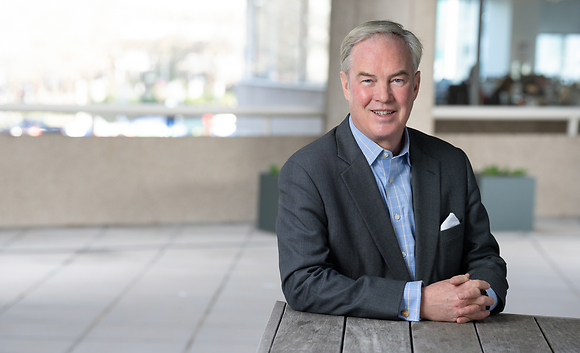Trevor Potter Featured on CBS News' Face the Nation
Caplin & Drysdale's Trevor Potter was a featured guest panelist on CBS News' Face the Nation where he discussed the role of money in the 2016 presidential election. To view the full episode, please visit CBS News' website.
Excerpt taken from the video.
DICKERSON: Joining us now to discuss the role of money in campaign 2016, former SEC commissioner, a Republican appointee, Trevor Potter is now president of the watchdog group The Campaign Legal Center. Matea Gold covers campaign money for "The Washington Post."
DICKERSON: So Trevor, you have been worried about campaign finance for a long time, trying to fix the system.
What worries you about the current state of things? TREVOR POTTER: I think it is the potential for corruption, the appearance of corruption that the Supreme Court mentioned in the post-Watergate period, when we first had these rules. Matea talks of two systems. I think the problem is the two systems have essentially merged.
You have these enormous sums of money being raised by supposedly outside groups that are not outside in anyone's imagination.
DICKERSON: And you mean outside, meaning outside of the candidate?
POTTER: Right.
DICKERSON: OK.
POTTER: So the legal limit you can give to a candidate is $2,700 and yet for almost all of the presidential candidates, you see that there are groups that have helped create, that their aides are running, that have raised many times what the campaigns have raised themselves.
So that you will see a report saying that a candidate raised -- pick Jeb Bush -- $100 million. Well, they are really talking about the super PAC, which has contributions of over a million dollars.
And where I think that leads is that average citizens look at this and say, well, you know, this is a game for billionaires, it's one billionaire talking to another billionaire. Where do I fit in this?
...
POTTER: I think Steve is absolutely right, this is a bipartisan problem. It is silly to pretend that just -- we're focusing on Republicans, because there are so many candidates running and there are so many super PACs. But both sides have this same issue, what Professor Larry Lessig (ph) calls dependency corruption, which means you are depending on the people who finance you.
And it used to be we had a broad base, we had a presidential public funding system. You got small donations; they were matched. You got presidential public funding in the general. That's who Ronald Reagan was elected by twice.
Today you have got a tiny group of people. In 2012, 90 percent of the contributions to these super PACs came from 523 people. These candidates become focused on the support of such a tiny group of people, which is so important, because these super PACs are raising far more money than they are going to raise.
And the result is when they get into government, you know, who are they going to take a call from?
Who are they going to listen to?
...
DICKERSON: We used to have the -- the two systems we've been talking about, you said they're melding it into one. There used to be a cop on the beat, the FEC, that would kind of try and keep those two systems apart.
The cop's not on the beat.
POTTER: Well, the chair of the FEC has referred to the commission as worse than dysfunctional. When I was on the commission, I think there was one vote where we tied 3-3 in the five years I was there.
Now that essentially happens all the time. And the result of that is the commission, which requires a majority of four votes to do anything, is deadlocked, gridlocked, paralyzed and not able to deal with complaints that come in.
And so I think what's happened in the political world is people have said well, you know, no one is going to go after this anyway. It always took years. But now, it's just not going to happen.
And so you've ended up in a situation which clearly the Supreme Court didn't intend. And Citizens United, when it said corporations could spend unlimited money and basically said this independent speech is a good thing, they said it's going to be fully disclosed, which it has not been. We have the dark money you pointed out, the secret money that goes in. And that it would be completely, wholly independent of parties and candidates. And it's not. These are groups that are visibly set up. There's an argument that they will make, well, I set it up before I became a candidate.
Attorneys
- Senior Counsel
